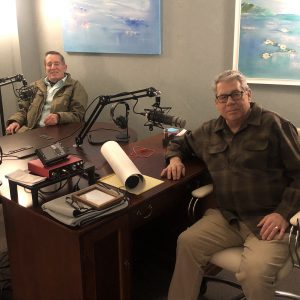Podcast: Play in new window | Download (Duration: 41:00 — 56.3MB)

After a year of intense combat in the jungles of Vietnam, Mike Orban, an Army veteran who served in the Vietnam War in 1971, returned home with severe post-traumatic stress that led him to an incredibly dark mental place. Mike discusses his story and experience with PTSD in his book Souled Out: A Memoir of War and Inner Peace, which highlights his journey in the war and how he dealt with combat’s traumatic impact. Today, Mike dedicates himself to outreach, connecting with numerous veterans and their families through his organization, the Orban Foundation for Veterans.
Mike Orban joins me today to discuss his journey before and during his year of service in the Vietnam War. He shares how serving in Vietnam transformed his worldview, his relationship with fear and courage during his time overseas, and the “thousand-yard stare” Mike witnessed in the troops who left combat. Mike discusses how being in the war completely altered his perspectives on life and the human race, and the guilt and shame he felt around his thoughts. Mike also highlights the overwhelming trauma symptoms he experienced upon returning to civilian life, including intense rage, anxiety, depression, social isolation, and the coping mechanisms he turned to in an effort to manage the intensity.
“I remember thinking to myself: ‘I am going home to life as it had been before.’” – Mike Orban
This week on the Stigma Free Vet Zone Podcast:
- How Mike’s family life shifted when he was a teenager and the impact this had on him
- What Mike’s view of the world was like before he entered the military
- What basic training was like for Mike physically and emotionally
- Mike’s experience entering Vietnam and the point that fear and terror of the situation set in
- Why Mike thought there was a good chance he might not survive the war
- What coming home from the Vietnam War was like for Mike
- How the war impacted Mike’s faith and spirituality and some of the events and experiences that haunted him mentally
- How civilian life changed for Mike when he returned from Vietnam and the mental “bunker” Mike placed himself in to cope
- The hypervigilance, isolation, rage, and panic attacks Mike dealt with after he returned home
- Mike’s experience with mental health stigma
Resources Mentioned:
This episode is brought to you by…
The Orban Foundation for Veterans is dedicated to bringing greater hope, understanding, resolution, and togetherness on issues of civilian readjustment for all military veterans and their families. Orban Foundation for Veterans promotes the importance of education, identification, understanding, acceptance, and resolution of many of the complex and severe responses to war and military life.
Visit our website to learn more about the Orban Foundation for Veterans and to support our mission.
Helping Veterans & Their Families Transition to Civilian Life
Thanks for tuning into this segment of the Stigma Free Vet Zone podcast, the show dedicated to helping veterans and their families make the transition from the military to civilian life and culture. If you enjoyed this episode, please head over to Apple Podcasts to subscribe to the show and leave a review. For more stories, insight, and resources on coping with military-related trauma and PTSD, visit our website and follow us on Facebook and LinkedIn. Don’t forget to share your favorite episodes across social media to help us raise awareness and help our brothers and sisters and their families transition to civilian life.
DISCLAIMER: The information and content shared in each episode of the Stigma Free Vet Zone are for informational purposes only. The Stigma Free Vet Zone hosts, Mike Orban & Bob Bach, are not, nor claim to be, medical doctors, psychologists, or psychiatrists and should not be held responsible for any claims, medical advice, or therapy/treatment recommendations mentioned on this podcast. Any advice mentioned or shared by Mike Orban, Bob Bach, or their guests is strictly for purposes of bringing awareness to the veteran community and the services available. Please speak with a medical professional before taking any advice or starting any therapy or treatment discussed or shared on this podcast.
 Bob interview
Bob interview